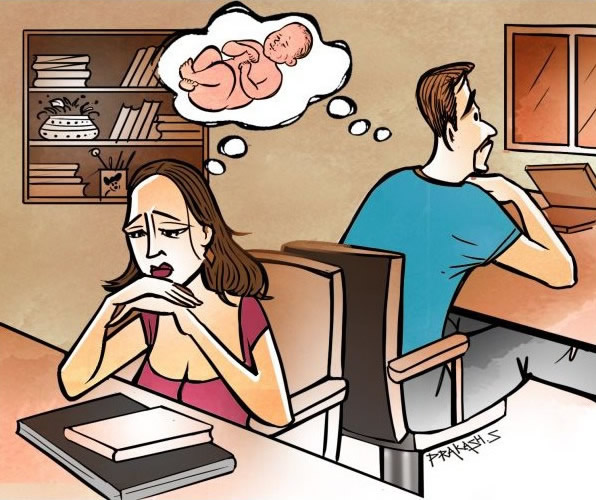Big increase in Infertility Cases
- Home
- News & Media
- Big increase in Infertility Cases

Stress is taking a severe toll on Bengalureans, rendering more and more couples incapable of having babies.
From bad traffic to long hours at work, many factors are responsible for couples facing difficulties.
The numbers are alarming: infertility cases have grown by at least 50 per cent over the past decade, according to doctors.
Dr Kamini Rao, medical director of Milann The Fertility Center, says 10 years ago, 10 per cent of the population was rated infertile. The number has now risen to 15, she says.
“Aspirations have come into play in a big way. Young people want to be well settled before they expand their families. But then, fertility starts reducing after 30,” she says.
With lifestyle changes come health problems. “Diabetes, hypertension and obesity are common causes of infertility,” she says.
Dr Kamini Rao sees at least 25 to 30 new cases a week. “In rural areas, women are sent for infertility treatment earlier than men, but among the urban population, both partners realise the importance of investigation and treatment,” she says.
Lack of physical stamina and interest add to the many causes of infertility, according to Dr Shafalika S B, consultant gynaec - laparoscopic surgeon, Columbia Asia. “More frozen and processed foods and lack of exercise are among the other reasons,” she says.
Use of plastic containers that contain hormone-disrupting elements can affect fertility. Choked traffic means longer commutes and more exposure to pollution, she says.
Dr Chitra Ramamurthy, senior consultant with Apollo CM Fertility Centre, says infertility is a growing problem both among men and women.
“The age of marriage and planning of conception is extended now, which has contributed to a rise in infertility cases. Earlier, couples would walk in sometime in their late 20s or early 30s. Nowadays, 20 to 30 per cent of all patients are between 35 and 40 years,” she explains.
Doctors also see a change in the pattern of medical investigation among men. “More men are undergoing tests than before. Over the years the mental block is phasing out and men are more open for investigation,” she says.
She has also seen a 50 per cent increase in the number of infertility cases in the past decade back.
No time to plan family
Some couples are so career-oriented they have no time for each other. They opt for methods like IVF for conception. Stress and deadlines are contributing majorly to infertility.
Dr Chitra Ramamurthy, Senior consultant
Reasons galore
Where infertility is concerned, 40 per cent can be attributed male factors, 40 to female factors, 10 to combined factors and 10 to unknown reasons (lifestyle modifications etc).
About 2 to 3 per cent of cases could be caused by substance abuse, alcohol and smoking.
Dr Kamini Rao, Director of fertility centre
Keep this in mind
Avoid processed and unhealthy foods
Don’t store food in plastic: it affects hormones
Minimise commutes: pollution impacts your chances.
Sedentary lifestyle is bad. Exercise, be active.
Docs’ tips for couples
Follow a nutritious diet, with fruits, vegetables and nuts.
Exercise for 40 minutes daily, at least five days a week.
Reduce stress; meditate for at least 20 minutes a day.
